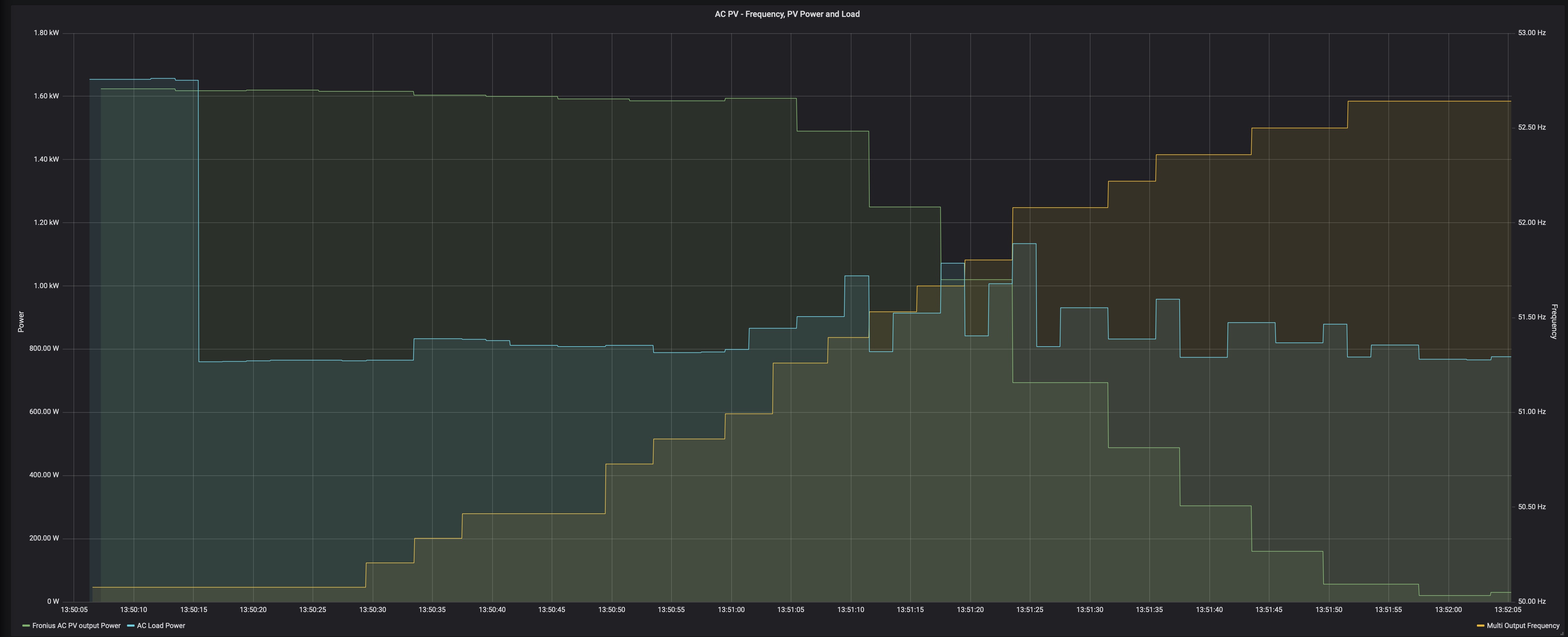Hello,
From what I can tell Frequency shifting isn't a perfect solution for an off grid ac coupled solar control.
Does Victron support both Solar Edge and Fronius AC coupling options 100%? Are there any limitations to frequency shift control? Other than the 1:1 rule.
Is Selectronic Frequency shifting (generic AC coupling) more advanced than Victron? I heard Victron was 25% steps up or down in power.

